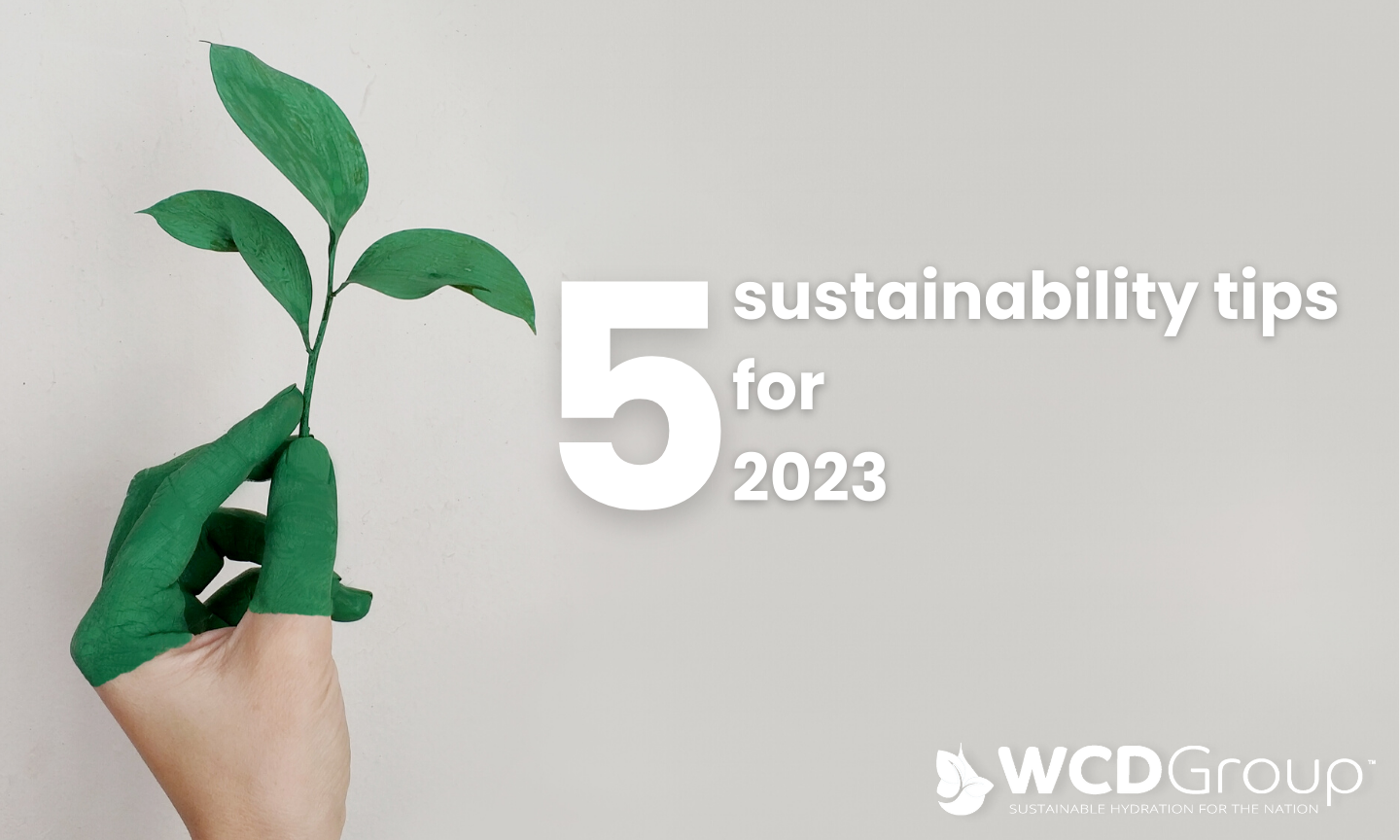5 sustainability tips for 2023
When it comes to sustainability in 2023, there are many ways you can help reduce your impact on the planet. It all starts with simple actions like taking public transportation instead of driving alone and turning off electronics when they aren't being used. Here are our top 5 tips for sustainable living this year:
Use public transportation, carpool, or walk or bike instead of driving alone to reduce your carbon footprint.
In addition to saving money, using public transportation is also a great way to reduce your carbon footprint. The average car emits 4.6 tons of CO2 per year, while a bus or train only emits 0.1 tons of CO2 per passenger mile. Even if you just use public transportation once a week instead of driving yourself, you can reduce your carbon footprint significantly without making any other changes in your life.
If you do drive alone frequently instead of taking public transportation and want to cut down on emissions even more—as well as help the environment and improve your health—consider carpooling! Carpooling not only helps lower emissions from cars but also reduces traffic congestion and increases safety on the road by reducing accidents caused by distracted drivers.
If you're interested in learning how to find carpool partners who live near you (or even work with them), check out https://www.blablacar.co.uk/.
Reduce your water consumption by fixing leaks, taking shorter showers, and using an instant boiling tap at home
Fix leaks: If you notice that your faucet drips, fix it immediately. Leaks can waste as much as 20% of the water coming into your home, and over time the drip will add up to a lot of wasted resources.
Take shorter showers: Taking shorter showers can save up to 5% of the water used in a household each year. Try using timers and setting reminders on your phone so you don't have to worry about running out of time during showering time!
Instant boiling tap: If you have one installed at home, using an instant boiling tap for cooking can save up to 100 litres per year (the same amount as taking a 5-minute shower). You can view our full range of instant taps by clicking here.
Reduce your energy consumption by using energy-efficient appliances and turning off electronics when they are not in use.
Turn off lights, appliances, and electronics when they're not in use. Take a minute every day to go through your house and turn off all the lights that you don't need to be turned on. Also, be diligent about turning off your electronics whenever they are not in use; this includes things like microwaves and coffee pots (which can still be plugged in but shouldn't have the heating element on).
Use energy-efficient appliances. Whenever possible, opt for energy-efficient options when shopping for new appliances like washing machines and refrigerators since these will save you money over time by using less electricity than older models do.
Avoid using appliances that consume a lot of energy—especially if those products aren't necessary for life or work purposes (e.g., televisions). If it's difficult to avoid using certain types of products (like computers), try buying one with a lower power consumption rating instead; this way it won’t require as much electricity while running at peak capacity!
Plant trees and vegetation to help absorb carbon dioxide from the atmosphere.
Planting trees and vegetation is a simple way to help remove carbon dioxide from the atmosphere. It also helps reduce air pollution and improve air quality, as well as providing shelter for wildlife such as birds, insects, animals and other forms of life that live in forests.
In addition to absorbing CO2, trees also absorb other harmful pollutants such as nitrogen oxides (NOx), ammonia and hydrocarbons through their leaves, which can then be converted by photosynthesis into plant matter like fruit or wood.
Support businesses and organizations that prioritize sustainability and environmental protection.
One of the most effective ways to become a sustainable consumer is to support businesses that prioritize sustainability and environmental protection. Look for companies and organizations that are committed to reducing their carbon footprint, recycling or reusing materials, and creating products in a way that doesn't harm the environment.
Supporting these businesses will help them thrive, which means they'll continue to make products that align with your values.
We hope that these tips have been helpful to you, and we encourage you to share them with your friends and family. The more people who are aware of the risks facing our planet, the better chance we have at addressing them!




